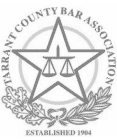Can Mediation Be Used to Resolve a Will Contest?
 When a beneficiary or family member of a deceased individual believes that the individual's will does not reflect the decedent’s actual wishes, they have the right to contest the will. Unfortunately, will contests are often extremely stressful and emotionally charged. If the dispute advances to litigation, the case becomes even more complex.
When a beneficiary or family member of a deceased individual believes that the individual's will does not reflect the decedent’s actual wishes, they have the right to contest the will. Unfortunately, will contests are often extremely stressful and emotionally charged. If the dispute advances to litigation, the case becomes even more complex.
Mediation is an alternative dispute resolution method in which a third party facilitates constructive discussions and negotiations between the opposing sides. If you are involved in a dispute regarding a deceased person’s estate, mediation may be a worthwhile option.
How Does Mediation Work?
One of the most common situations in which a will is contested is one in which a party believes that the decedent intended for them to receive certain property, but the will does not reflect this. Will contests can also occur when beneficiaries believe that the decedent's property has been distributed unfairly or in a way that the decedent would never have chosen.
Whatever the reason, sorting out these types of disagreements can be extremely complicated. A mediator's job is to help facilitate productive conversation regarding the disputed issues and guide the parties toward a resolution. The mediator does not hand down any directives or make decisions about the disputed issues. He or she acts as a facilitator. In the context of estate disputes, mediators often spend much of their time keeping conversations focused on the issues at hand, de-escalating conflict, and encouraging compromise.
What are the Benefits of Mediation?
When disagreements regarding estate matters end up in court, the hearing is open to the public. The issues and information presented become a matter of public record. Understandably, many people are uncomfortable about sharing their personal family disputes with the world. Mediation is confidential, and the discussions are private.
Mediation can prove especially useful during probate disputes because these are often very personal matters, and emotions are running high. A skilled mediator can help the parties discuss the issues in matter-of-fact terms and avoid emotional language that only escalates the conflict. Resolving the case through mediation instead of the court often helps preserve the relationships between the parties - something that is especially important when the parties are relatives.
Lastly, mediation puts the control in the hands of the parties involved in the case. Instead of a judge deciding on behalf of the parties, the parties have the opportunity to craft their own unique agreement.
Does Mediation Always Work?
While mediation can be a powerful tool for resolving probate disputes, participating in mediation does not guarantee an agreement outside of court. In some cases, a resolution is not reached, and the case must be litigated. Mediation may also be inappropriate if one or more of the parties involved in the dispute are unable or unwilling to be forthcoming with information, negotiate in good faith, or communicate respectfully.
Cleburne Estate Mediation Lawyer
At Cain & Kiel Law, we recognize that probate disputes can be deeply complicated on both a personal and a legal level. Our skilled legal team includes a certified mediator who is adept at helping parties resolve estate disputes without tarnishing family relationships. Call our office today at 817-645-1717 and set up a consultation to learn more about how our Hood County probate and estate lawyers can help you resolve your issue.
Source:
https://texreg.sos.state.tx.us/public/readtac$ext.TacPage?sl=R&app=9&p_dir=&p_rloc=&p_tloc=&p_ploc=&pg=1&p_tac=&ti=1&pt=7&ch=155&rl=351
We're Here When You're Ready
To set up a consultation with our attorneys and get the legal help you need, please call 817-645-1717 or fill out the form below:
The use of the Internet or this form for communication with the firm or any individual member of the firm does not establish an attorney-client relationship. Confidential or time-sensitive information should not be sent through this form.
I have read and understand the Disclaimer and Privacy Policy.

 817-645-1717
817-645-1717









